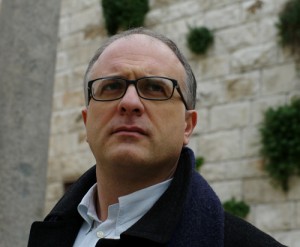The other night before his wonderful concert, pianist Emenuele Arciuli, who is a great advocate for American piano music and has published a book, Musica per Pianoforte negli Stati Uniti, told me and composer Martin Bresnick that in Europe he often has to defend American music, which is attacked by composers there as being superficial, commercial, and lacking in technique.
The next day, at New Music Box, web site of the American Music Center, composer Mara Gibson described how inspiring it was for her to study with German composer Helmut Lachenmann at Darmstadt:
Lachenmann vehemently told us (particularly the Americans, a.k.a. the “zombiesâ€) to forget everything we had learned up to that point. He encouraged us to develop our own material independently of our teachers. He explained that we are part of a “North American syndrome†that potentially results in work without any “real artistic provocation, just frustrating and boring.†His musical outlook could be encapsulated in the following quote:
With conventional or unconventional sounds, the question is how to create a new, authentic musical situation. The problem isn’t to search for new sounds, but for a new way of listening, of perception. I don’t know if there are still new sounds, but what we need are new contexts.
Now, in response let me see if I can recreate, from memory, the line that is perennially used by those defending European high modernist music from American composers:
Wasn’t that debate over twenty years ago? Haven’t we yet reached the point at which we can celebrate the world’s musical styles in all their wonderful diversity? Can’t we just all get along?

 A week from tonight,Â
A week from tonight, 